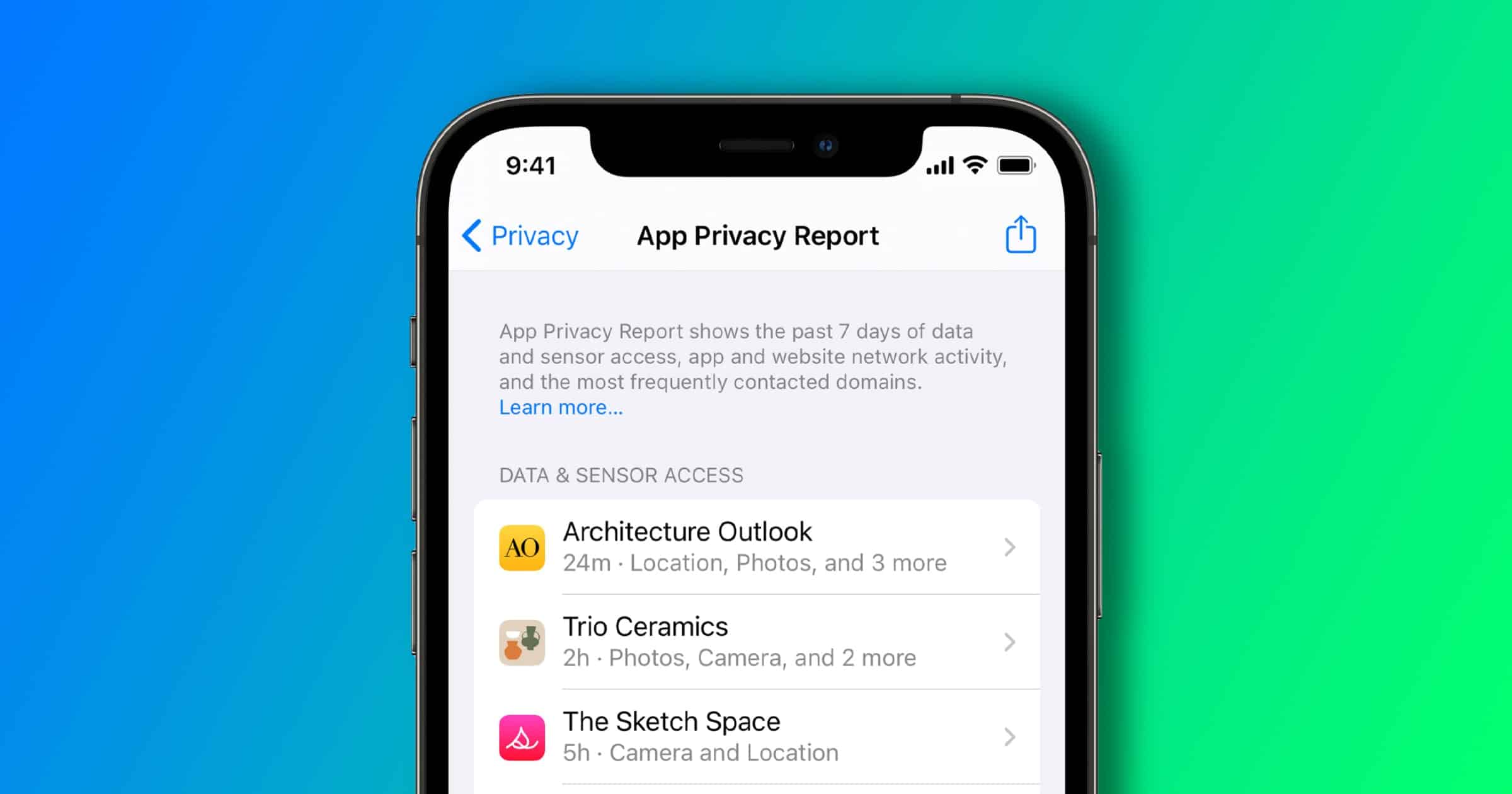Apple announced a swathe of new privacy features for its operating systems, and Apple VP Craig Federighi spoke about the new changes (via Fast Company).
WWDC 2021 Privacy
These are a few privacy features mentioned onstage at WWDC 2021:
- App Privacy Report: With App Privacy Report, users can see how often each app has used the permission they’ve previously granted to access their location, photos, camera, microphone, and contacts during the past seven days.
- Safari Private Relay: Private Relay ensures all traffic leaving a user’s device from Safari is encrypted, so no one between the user and the website they are visiting can access and read it, not even Apple or the user’s network provider. All the user’s requests are then sent through two separate internet relays.
- Hide My Email: Built directly into Safari, iCloud settings, and Mail, Hide My Email also enables users to create and delete as many addresses as needed at any time, helping give users control of who is able to contact them.
Mr. Federighi says that the Private Relay technology is different than what a VPN does, and is more private:
We hope users believe in Apple as a trustworthy intermediary, but we didn’t even want you to have to trust us [because] we don’t have this ability to simultaneously source your IP and the destination where you’re going to–and that’s unlike VPNs.
He also believes Apple has a role in pushing the tech industry forward when it comes to adding privacy benefits:
But ultimately, when customers become aware of what they should expect, what they can expect, what is possible once they are made aware that the deal they thought they had to make–that actually, that’s not a deal they have to make— then the whole industry has to react to offer customers what they now realize they want and demand.
Apple users can start exploring these private changes to iOS 15 and others in the developer beta or the public beta which will launch in July.

Andrew:
This is one of the principal reasons why I have not opted to get a commercial VPN; it is not clear what they will do with their observational data, which they can collect, on where you are and where you’re going, effectively converting their service into a honey pot which we have to trust they will not attempt to monetise. And in any case, my internet habits are easily predictable from my public profile, which any intelligence agency worth its salt can source in a heartbeat, legal throughout (most) of the countries I work in and visit, and reliably boring.
What Apple are offering is actually truly exciting, and as I averred the other day, it will be interesting to watch this space, and see how authoritarian surveillance states react to these privacy measures.
The absence of any pushback or complaint would suggest that ‘they’ve got this’, with effective countermeasures in place.